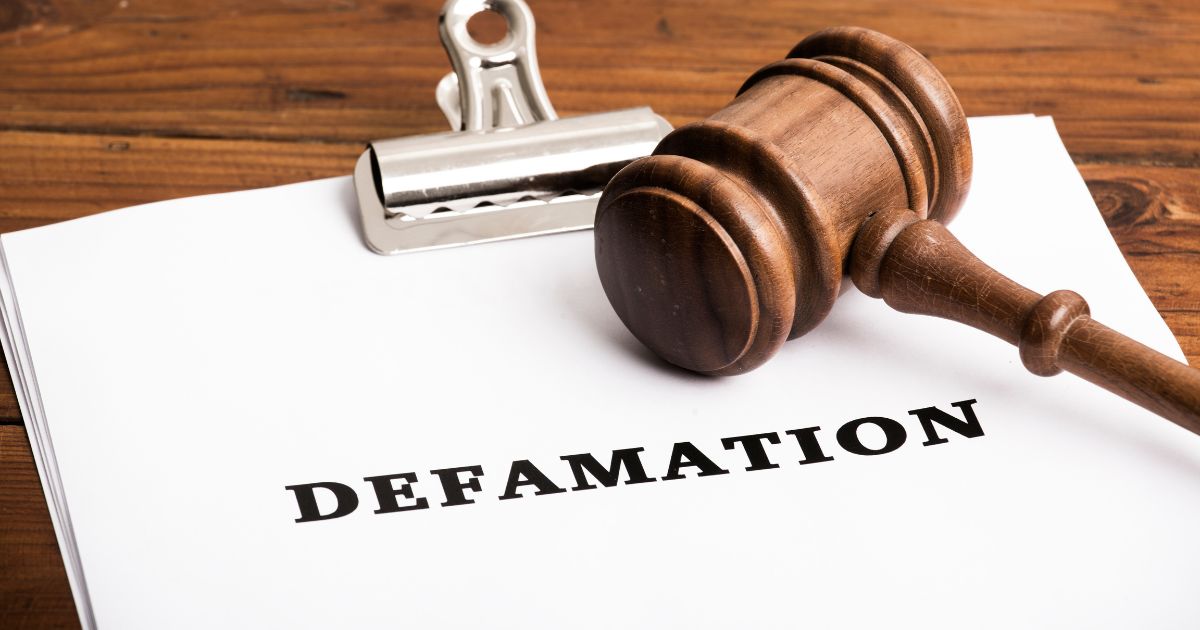In a high profile or high net worth divorce, accusations made by your ex can become public and may cause major damage to your reputation and professional career. The recent celebrity divorce involving Johnny Depp is an example.
Depp sued his ex-wife Amber Heard for defamation, claiming she made false accusations of domestic violence against him. On June 1, the jury found Heard guilty of defamation and Depp won his libel case, and awarded Depp $10 million in compensatory damages and $5 million dollars in punitive damages, although punitive damages in the state of Virginia are capped at $350,000. The jury also awarded Heard $2 million in compensatory damages and no money for punitive damages for comments Depp’s former attorney made about Heard’s motives.
While this was a celebrity case, there are important lessons to be learned about defamation and false accusations against your spouse:
- False accusations are not protected under 1st amendment freedom of speech rights, and there are serious legal and criminal consequences for making false, defamatory accusations against a spouse or ex-spouse.
- Both women and men can be victims of domestic abuse – physical, financial, and emotional.
Our New Jersey divorce attorney explains more about the case and how to prevent defamation in your divorce proceedings.
Defamation: A Common Factor In High Net Worth Divorce
Defamation involves making oral or written statements about others that have the potential to damage their reputation. It is common in high profile and high net worth divorces and is at the heart of a lawsuit involving the celebrity divorce of actor Johnny Depp. Defamation cases aren’t only about money, they are about reputation. Depp sued Heard for $50 million, which she does not seem to have, but his reputation was legally restored.
Johnny Depp Celebrity Divorce and Defamation Claims
The New York Times reports that the actor sued ex-wife Amber Heard for defamation after she wrote an op-ed article for The Washington Post in 2018. In it, she refers to herself as a survivor of domestic violence but does not mention Depp by name. Depp’s attorneys claim the implication was obvious, based on their relationship history:
- Depp married Heard in 2015 after several years of dating;
- Heard filed for divorce a year later;
- She immediately took out a temporary restraining order against Depp, claiming domestic violence as the cause;
- Depp’s lawyers denied the claims, alleging she made false allegations to secure a financial settlement.
The couple eventually reached a divorce settlement. Heard withdrew her request for a permanent restraining order and the high-profile couple issued a statement clearing each other of wrongdoing. However, after Heard wrote the Washington Post article, Depp’s reputation suffered, and he lost lucrative career opportunities. As a result, Depp sued his ex for $50 million, while Heard filed a $100 million counter-claim against him.
Defamation and Divorce In New Jersey
Section 17B:30-7 of the New Jersey Statutes prohibits making, publishing, or circulating oral or written statements about others that are false or maliciously critical in business dealings. In regards to divorce and other family law matters, a 2014 appeals court ruling in The State of New Jersey v. H.L.M. affirmed each party’s first amendment rights in discussing the case. However, the court stated that these rights do not extend to defaming or otherwise slandering the reputation of an ex.
Defamation And Social Media In New Jersey
Social media posts are among the most common and far-reaching means of defaming a former spouse. Comments that can do serious damage to their reputation or career include:
- Complaints of adultery, drug or alcohol abuse, or other marital misconduct;
- Allegations of domestic violence;
- Claims that a former partner is a neglectful or abusive parent;
- Accusations of misconduct in business and personal financial dealings.
Learn More: Social Media and Divorce Tips: Dos and Don’ts
How To Prevent Defamation In New Jersey Divorce Proceedings
In high net worth or high profile divorce cases, where keeping personal details private is a paramount concern, a non-disparagement/non-disclosure agreement (N.D.A.) is often the best option. This prohibits either party from discussing the matter publicly or disclosing any settlement details. An N.D.A. in New Jersey is enforceable through the New Jersey Family Court and can result in penalties that include:
- Loss of assets or other rights in divorce settlement agreements;
- Assessment of court costs and fines;
- Payment of the other party’s attorney fees.
Discuss Your Case With Our New Jersey Divorce Attorney
Defamation is a common problem in high net worth and high profile divorce. At Zeigler Law Group, LLC, we can help protect your privacy and reputation by putting a non-disclosure agreement (N.D.A.) in place. To discuss your options, call us at 732-361-4827 or contact our office online and request a consultation with our New Jersey divorce attorney today.

